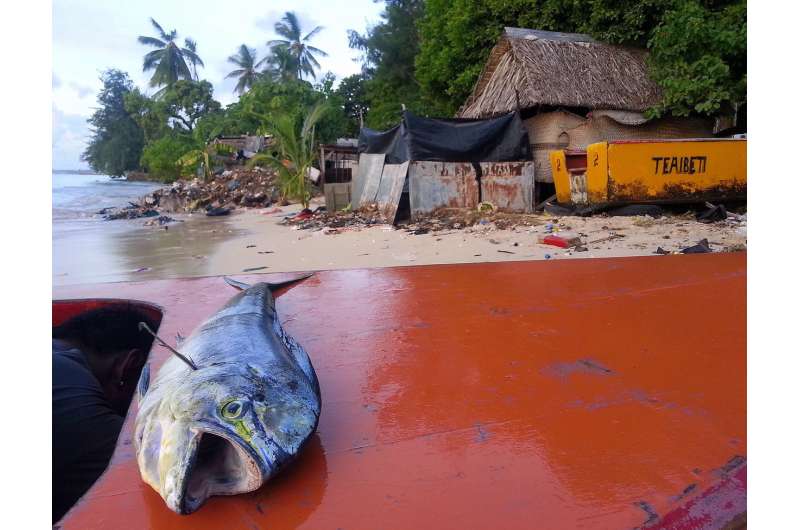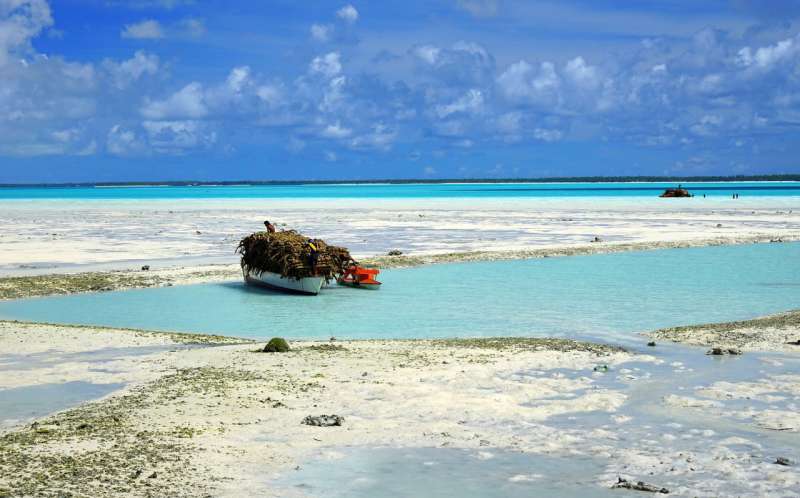Pacific Island countries could lose 50 - 80% of fish in local waters under climate change

Many Pacific Island nations will lose 50 to 80 percent of marine species in their waters by the end of the 21st century if climate change continues unchecked, finds a new Nippon Foundation-Nereus Program study published in Marine Policy. This area of the ocean is projected to be the most severely impacted by aspects of climate change.
"Under climate change, the Pacific Islands region is projected to become warmer, less oxygenated, more acidic, and have lower production of plankton that form the base of oceanic food webs," said lead author Rebecca Asch, Nereus Program alumnus and Assistant Professor at East Carolina University. "We found that local extinction of marine species exceeded 50 percent of current biodiversity levels across many regions and at times reached levels over 80 percent."
The Pacific Islands region is the warmest of the global ocean. It's also an area where there is less seasonal variability—it more or less feels like summer all year. Because there are no drastic seasons, the animals in the tropical Pacific may find changing conditions to be more of a shock.
"Additional warming will push ocean temperature beyond conditions that organisms have not experienced since geological time periods in this region," said co-author Gabriel Reygondeau, Nereus Fellow at UBC. "Since no organisms living in the ocean today would have time to adapt to these warmer conditions, many will either go extinct or migrate away from the western Pacific, leaving this area with much lower biodiversity."

The authors examined the effects of climate change on more than a thousand species, including those that live on reefs and those that live in open-water habitats. Both groups underwent declines in local biodiversity, but the rates of decline were higher for the open-water species.
These changes would be detrimental to Pacific Islanders, who are highly dependent on marine species for food, economic opportunities, and cultural heritage. Additional threats come from sea level rise and increasing major storms. Also, these are often developing countries with less resources available for societal adaptations to climate change.
"One hopeful point is that the extent of these changes in biodiversity and fisheries was dramatically reduced under a climate change scenario where greenhouse gas emissions were close to what would be needed for achieving the Paris Climate Agreement" said co-author William Cheung, Nereus Director of Science. "As a result, these changes in oceanic conditions are not inevitable, but instead depend on the immediate actions of all countries to materialize their commitment to limit greenhouse gas emissions as is being discussed in COP23 in Bonn, Germany, this week."
More information: Rebecca G. Asch et al, Future marine ecosystem drivers, biodiversity, and fisheries maximum catch potential in Pacific Island countries and territories under climate change, Marine Policy (2017). DOI: 10.1016/j.marpol.2017.08.015
Journal information: Marine Policy
Provided by Nippon Foundation-Nereus Program

















